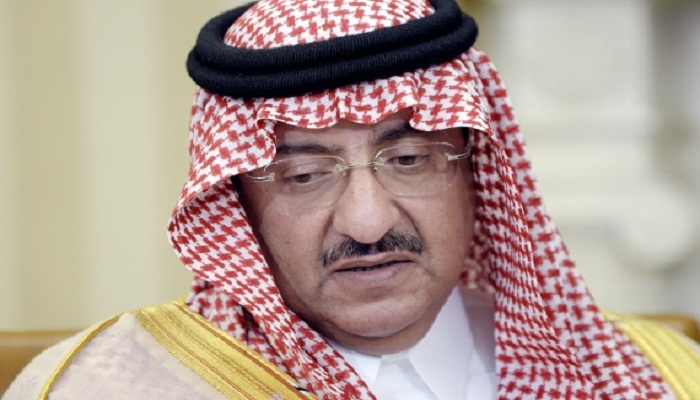
Saudi Arabia says bin Nayef ‘addicted to cocaine’
A source close to the Saudi court has alleged that the country’s former crown prince, who was ousted last month and was replaced by the king’s favorite son, is addicted to morphine and cocaine.
The summary removal of the then-crown prince Mohammed bin Nayef raised eyebrows at home and abroad. Some observers have said the incident amounted to a palace “coup.”
In the absence of any official explanation, reports emerged of anonymous sources purporting that bin Nayef, who lost the position to Mohammed bin Salman by royal fiat on June 21, had drug problems. Initially, the Saudi sources alleged morphine abuse, which they said Nayef used to relieve pain from a shrapnel he received during a botched attack against him in 2009.
But on Friday, another source close to the Saudi court seemed to further stretch that narrative.
Nayef was dismissed due to morphine and cocaine addiction, the source told Reuters, anonymously.
“MbN has a lot of respect among us as a crown prince and as interior minister but there are higher interests for the state, which are more important than social position or status,” the source said, referring to Nayef with an abbreviation of his name.
But sources close to the former crown prince have seemed to imply that the allegations of addiction are not true, and that a behind-the-scenes power struggle had been at play.
Reuters said that bin Salman had been using his relationship with his king father “to reorder the top jobs in the political, oil, security, security and intelligence sectors, often without the knowledge” of bin Nayef.
Saudi Arabia’s ailing 81-year-old King Salman (seen below) has been reportedly suffering from partial dementia and is said to be contemplating an abdication in favor of his son.

Since his ouster, bin Nayef has reportedly been under house arrest. He has seen his security guards changed and has not been allowed to receive visitors except close family members, according to sources close to him.
One such source said earlier that bin Nayef had wanted to take his family to Switzerland or the United Kingdom, but the king and his son had decided that he had to stay. “He wasn’t given any choice,” the source said.
Accounts emerged recently that bin Nayef had been pressured overnight to end his claim to the throne, which he did under duress. He later appeared in footage pledging allegiance to the new crown prince.
Bin Nayef was also relieved of his duties as interior minister.
Speaking to Reuters, sources said that bin Nayef had been “usurped” by the “often impulsive” Mohammed bin Salman, saying he had not expected to be removed in such a manner.
Bin Nayef reportedly believed that bin Salman had “made a number of policy blunders, such as his handling of the Yemen conflict and cutting financial benefits to civil servants.”
As Saudi Arabia’s defense minister, bin Salman is believed to have been largely responsible for the disastrous invasion of Yemen, where high civilian casualties and a cholera epidemic have raised international alarm.
